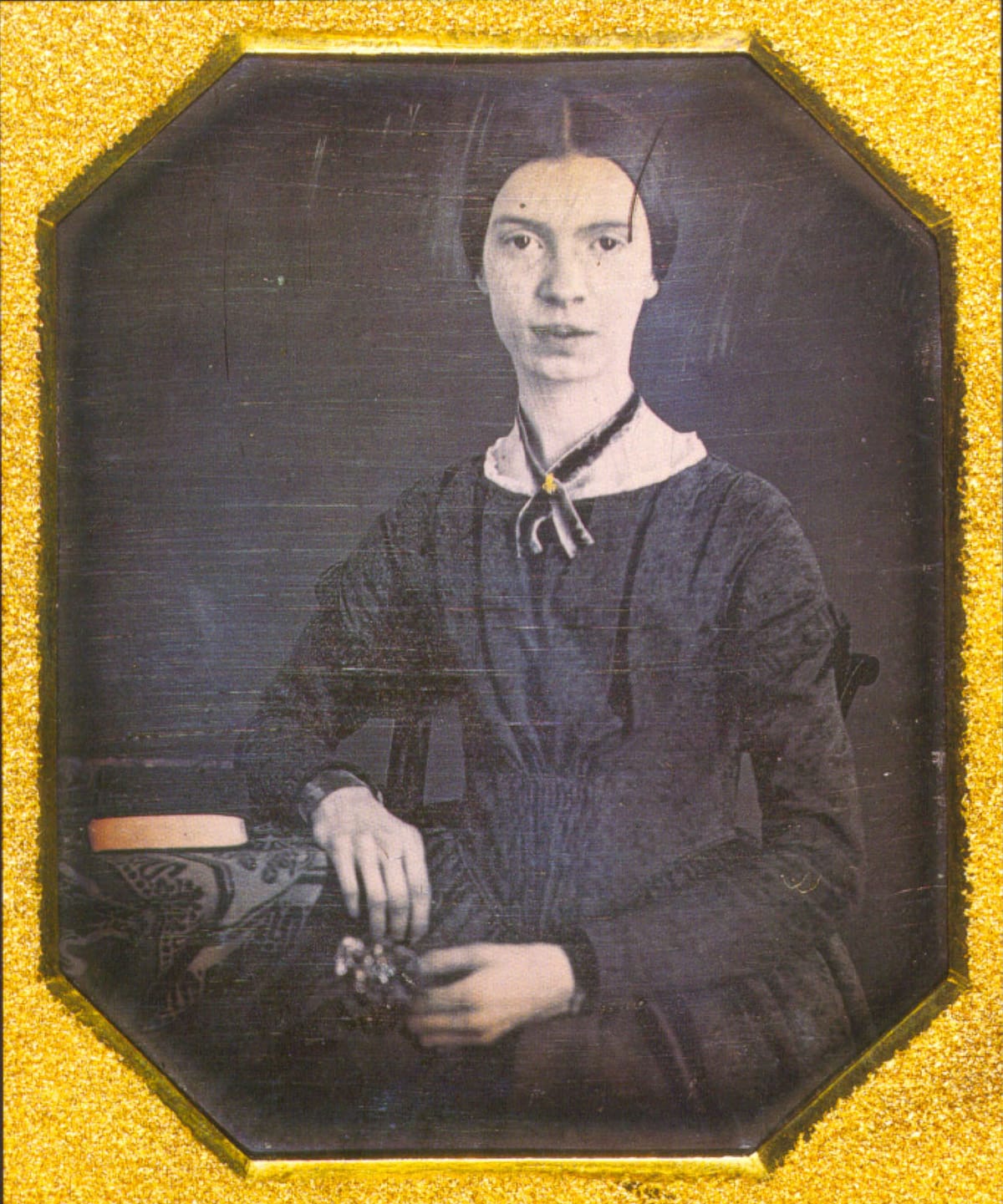Emily Dickinson's Poems Become Public Domain

Copyright ends, creativity begins. Dickinson’s Further Poems is now public—learn the story of feuds, fame, and freedom in art.
When Emily Dickinson died in 1886, she left an astonishing 1,800 unpublished poems behind. And, because of a strange quirk of copyright law, an important part of this legacy of one of our greatest poets is finally about to become public domain.
It all began with Lavinia Dickinson, Emily’s devoted sister, who discovered this unpublished trove. Lavinia, determined to share her sister’s work with the world, sought help from family and friends, including Susan Dickinson, an important confidant in Emily's life as well as her sister-in-law, and Thomas Wentworth Higginson (a mentor of Emily's). However, frustrated by delays, Lavinia then made the fateful choice of turning to Mabel Loomis Todd, the mistress of Emily's brother, for help. That choice accidentally ignited decades of rivalries over who truly had the right to shape and share Emily’s legacy. “Superficially a war between women, the Todd-Dickinson feud began and ended in property battles” (Horan, 1996).
It all came down to family dynamics, money, and sheer stubbornness. The Todd family and the Dickenson's quarreled over a small plot of land and that quarrel soon trampled any hope of continuing to publish Emily's work. Todd, now in possession of a vast swath of Emily's unpublished work, refused to release it for 30 years, and it didn't see the light of day until after her death.
The copyright law at the time only added to the complexities. Unpublished works were treated as having perpetual protection until their release, meaning Emily’s poems were locked in a legal limbo. The stakes were enormous: “At stake was the right to control, limit, and profit from publication of Emily Dickinson texts” (Horan, 1996).
When Further Poems of Emily Dickinson was finally published in 1929, it sparked fresh excitement—and new controversies. Edited by Martha Dickinson Bianchi and Alfred Leete Hampson, the collection carried a 95-year copyright term under the rules of the day. “Perhaps we may hope, as times enlarge, for yet further discoveries,” wrote Robert Hillyer in a 1929 review. Further releases have indeed taken place, but even today not all of Emily's work has seen the light of day. The market, which Dickinson herself compared to a “slave auction,” became “for her niece a source of vindication, a means for avenging in public the private wounds of the past” (Horan, 1996).
Modern copyright law has since clarified many of the murky questions that surrounded Emily’s work. Today, unpublished works no longer receive perpetual protection, and terms are more consistently defined. But pre-1978 rules still govern works like Further Poems, making it a legal artifact as much as a literary one.
As Further Poems enters the public domain, its expiration allows more of the great poet's work to enter a sphere of public discourse. New generations can explore Emily’s words freely, shaping their own connections to her poetry. “No other recent book can be so important to American literature,” Hillyer declared in 1929. And now, at the end of the twenty-first century's first quarter, they are finally free.
Yet, this moment is not just about legal changes or literary milestones. This is about the enduring power of Dickinson’s poetry, the way it captivates the heart and mind well over a century after her death. Her verses, described as “wrenched out of prose into high poetry,” continue to resonate with readers today as much as when she first penned them in the 1800s (Hillyer, 1929). Now this important part of her work becomes not merely some marketable item to be used in legal and financial power plays, but an aspect of cultural renewal, open to all.
👋 Hi there!
I’m Odin Halvorson, a librarian 📚, independent scholar 📖, film fanatic 🎬, fiction author 📝, and tech enthusiast 💻. If you like my work and want to support me, please consider becoming a paid subscriber to my newsletter for as little as $2.50 a month! 📣
Support me in other ways:
- Use this affiliate link to sign up for Libro.fm, the best audiobook platform around! 🎧
- Want your own Ghost website? Check out MagicPages for the cheapest rates via my affiliate link (they even offer lifetime hosting plans!) 📈
References
Hillyer, Robert. (1929). Further Poems of Emily Dickinson.
Horan, Elizabeth. (1996). "To Market: The Dickinson Copyright Wars." The Emily Dickinson Journal, 5(1), pp. 88–120.
